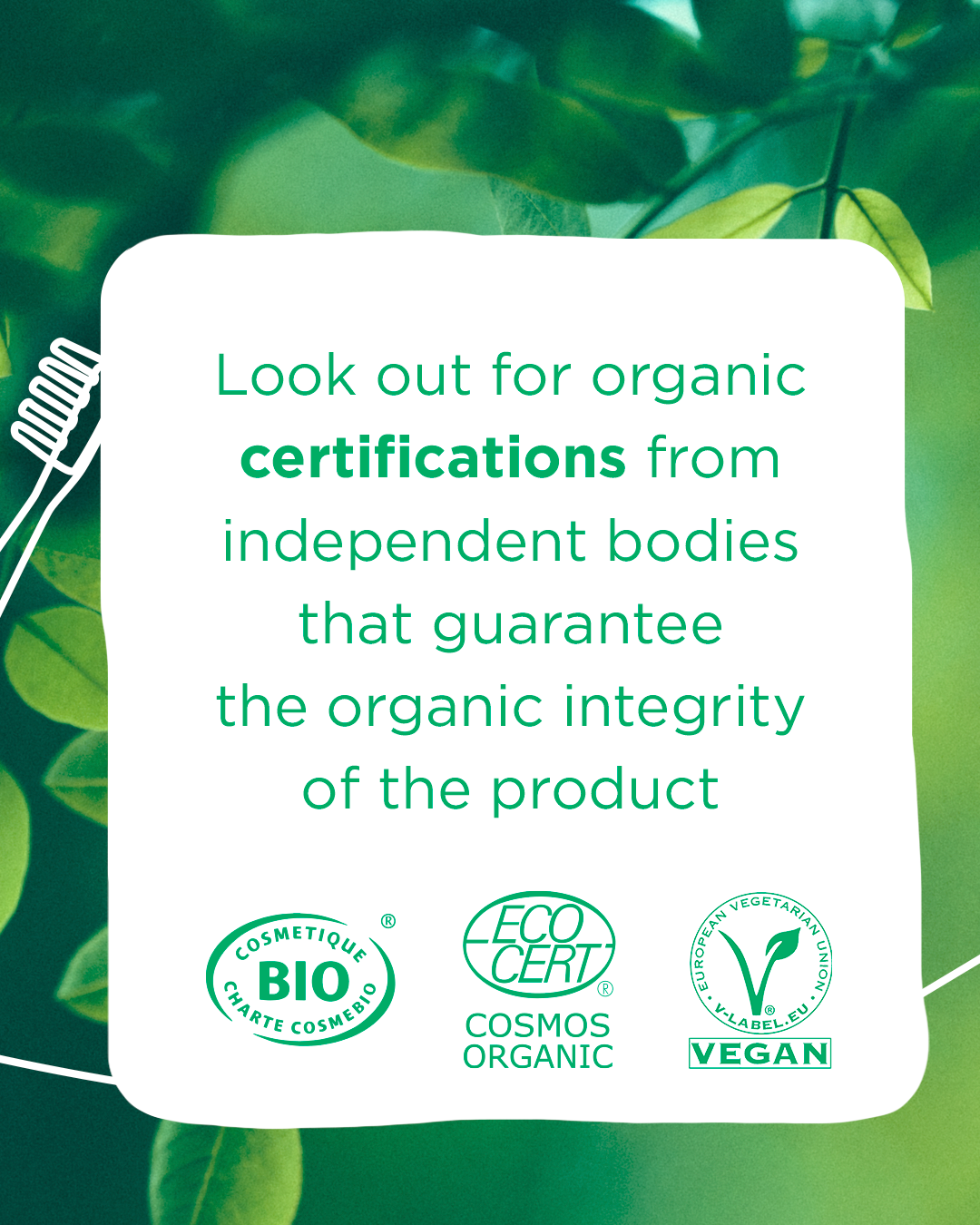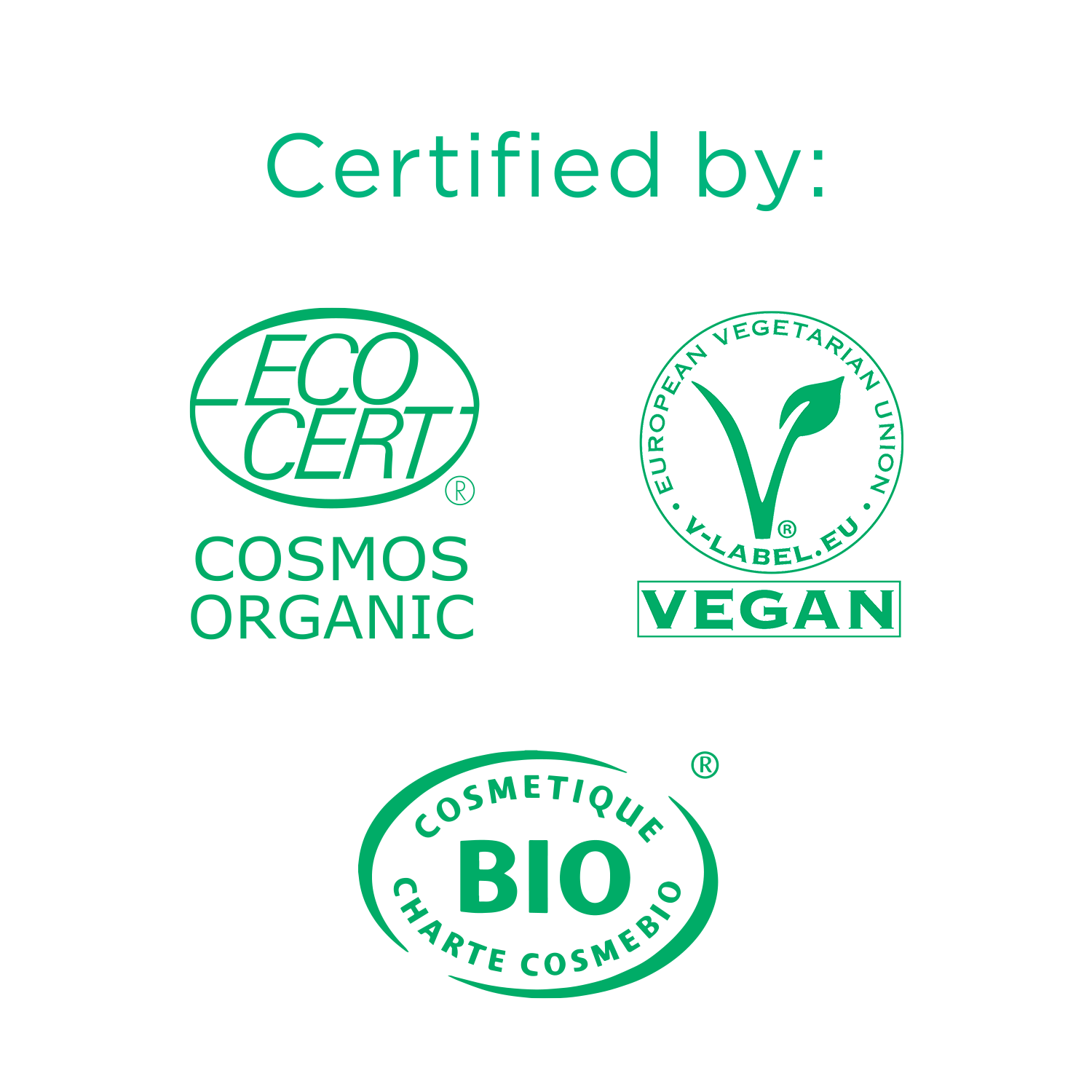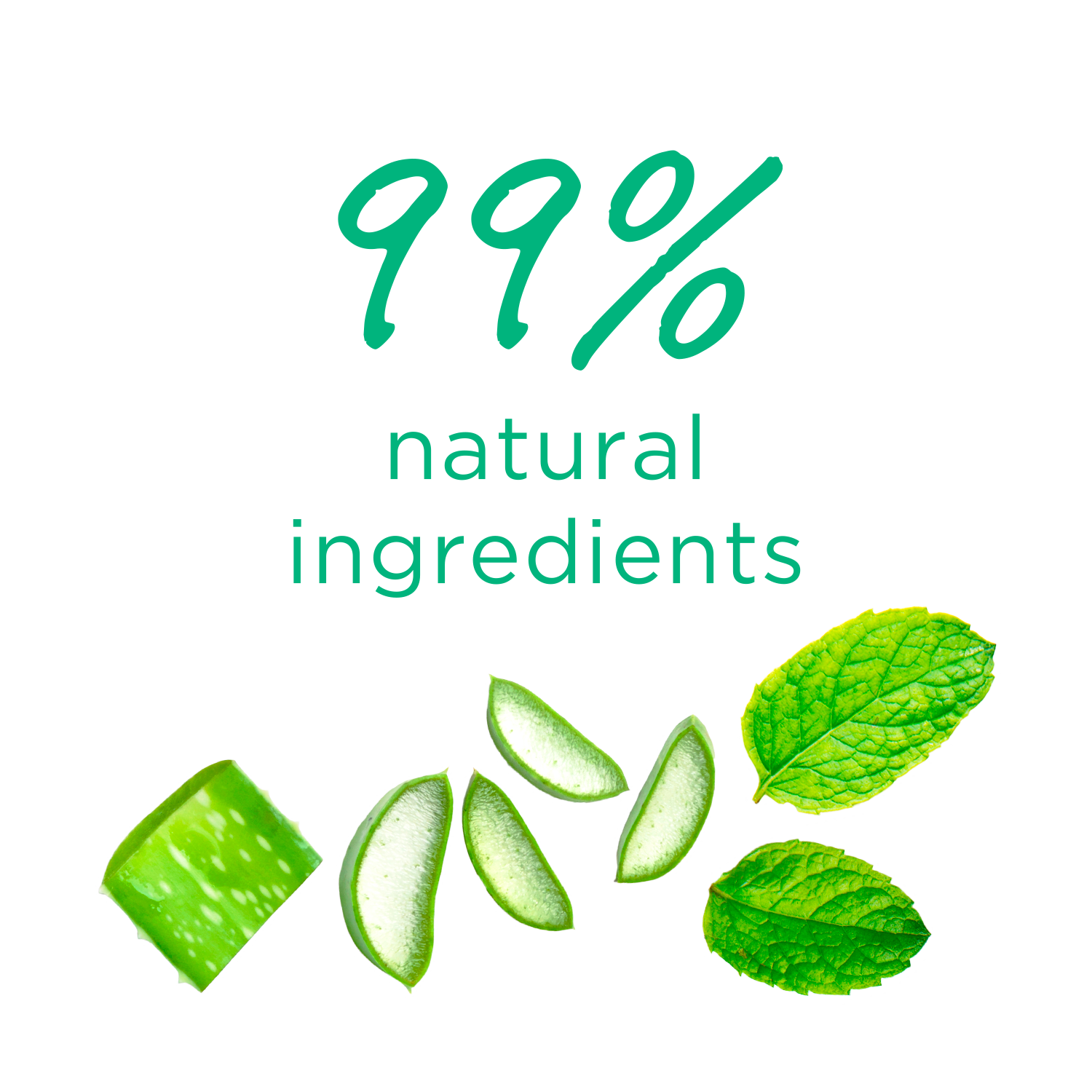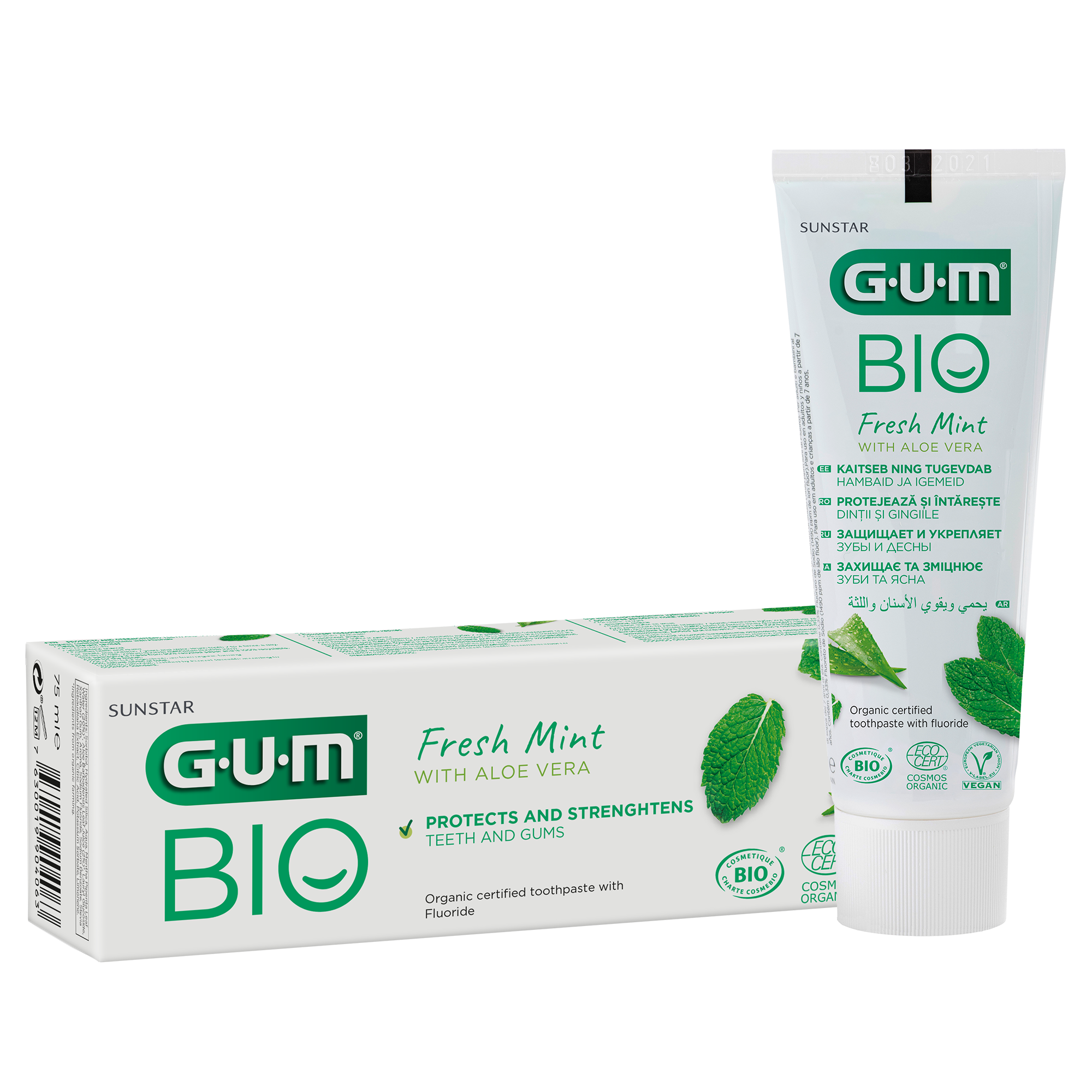
Understanding Organic Oral Care: Certifications You Can Trust
As our society becomes more cautious and mindful about the goods they consume – and what goes into them – there has been a major global movement toward organic foods and products.

In the UK for example, people are turning to organic options more than ever before. The country’s organic market grew by 12.6% from 2019 to 2020, reflecting a broad shift in consumer preferences to prioritize products that are naturally sourced and free of artificial chemicals and additives.
This movement has grown to encompass the oral care industry, with organic certified toothpastes such as GUM® BIO Toothpaste emerging to meet the needs of consumers who are driving and embracing this shift. Here we’ll explore what differentiates “organic toothpaste” from standard toothpastes, and what you should look out for to find products that live up to their promise (while still delivering the protection you need).
What is organic toothpaste?
While there is no single governing body that defines or certifies organic products and ingredients around the world, products sold under the organic label often include natural ingredients and components grown without the use of harmful pesticides or fertilizers from non-genetically modified seeds.
Although the synthetic ingredients commonly found in toothpastes from major brands have shown to be effective, safe and non-harmful, many consumers are understandably choosing to steer away from human-made chemicals. The highest-quality organic toothpastes meet this preference while not sacrificing the quality of your cleaning.
Organic oral care certifications
Consumers face a challenging scenario when shopping for organic products: how do they know which ones they can trust? Sadly, “greenwashing” – when brands fail to live up to their sustainability promises – is prevalent across all industries.
As Alex Ledsom wrote at Forbes, “Now consumers increasingly look to the organic label as an arbiter of standards … such as where the product originated, whether living creatures were harmed in its making, whether the process caused other detrimental environmental impacts and so forth.” But the term “organic” on the label doesn’t mean much on its own.
In the oral care space, it’s important to look out for authoritative and credible certifications on the labels of these products. One of the most respected is COSMOS ORGANIC from Ecocert Greenlife, which evaluates against a rigorous set of criteria to ensure the product is genuinely organic. More than 29,000 products in 71 countries carry the COSMOS ORGANIC or COSMOS NATURAL signature.
Another trusted issuer of certifications is Cosmebio, which specializes in the area of organic cosmetics and verifying their contents as advertised. In order to meet the standard of being certified organic with this label, a product must meet these specifications.
- 95% to 100% of the ingredients of the total product must be of natural origin
- 95% to 100% of the plant-based ingredients must be organic
- 10% minimum of the ingredients of the total product must be organic
These are valuable insignias to look out for when shopping for organic oral care products. When a brand markets its products as natural or organic, don’t take their word for it. Always seek third-party validation from trusted sources who can affirm a true commitment to what these brands promote.

The problem with (some) organic toothpastes
We’ve covered a lot of benefits associated with organic toothpaste, but there is also a common downside: some of them just aren’t very effective. This is frequently because some brands choose to forego fluoride, as it is an inorganic chemical.
While many standard toothpaste ingredients can be removed without sacrificing the protection of your teeth, we discourage use of a toothpaste without fluoride because it won’t help prevent and fight tooth decay. This is one of the most essential goals of a home oral care routine.
Another drawback to organic toothpastes can be lack of enticing flavour. This is improving as more high quality organic certified toothpastes come on to the market, such as GUM BIO toothpaste.
Choose an organic toothpaste that works
With these certifications and considerations in mind, we encourage you to explore the range of organic toothpastes on the market to find one that best suits your needs. At SUNSTAR, we are proud to offer a certified organic GUM BIO Toothpaste that offers fluoride protection for teeth and gums and a pleasant taste:






